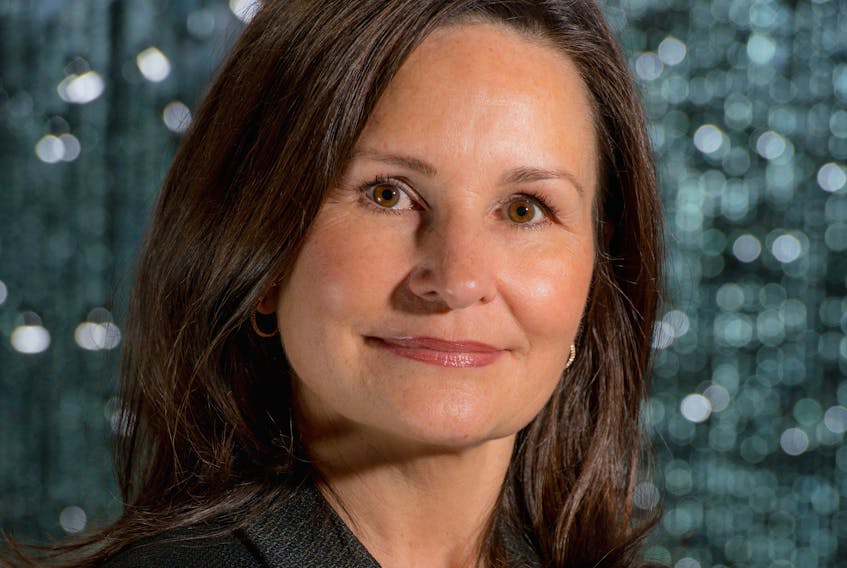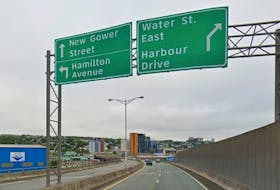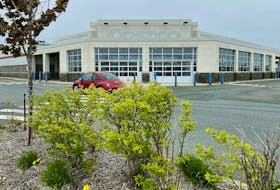As Ella Goss describes the challenges she faces as she begins her tenure as the newly appointed CEO of Alaska’s largest hospital, the incredible distance between there and her home province of Newfoundland and Labrador disappears through the telephone line.
She may live nearly 9,200 kilometres away from Holyrood, where she grew up, but she may as well be describing the dilemma facing health care in Newfoundland and Labrador.
An economy hampered by a waning oil boom, an aging demographic, rising health care costs, a tough recruitment slog when it comes to specialized medicine and pressing needs for long-term care facilities and mental health services are all issues anyone that’s involved in health care in Newfoundland and Labrador knows all too well.
Despite the political differences and vastly different health care systems in the U.S. and Canada, some issues are universal.
But Goss is up for the challenge, undaunted by those obstacles.
Goss, who graduated from the former St. Clare’s Hospital nursing school, took her seat in the CEO’s chair at not–for-profit Providence Alaska Medical Center earlier this month. It was a desk she had sat across many times in a career of more than 20 years at the facility.
It’s first time in 42 years the hospital has had a female CEO. It was originally run by Catholic nuns, but was eventually turned over to lay people.
“It was surreal. I didn’t start out in Alaska thinking I would be CEO,” she said, adding that in the last couple of years she had been encouraged and mentored to go for the job by the progressive leadership of the network of hospitals that her facility is part of.
The previous CEO retired.
Goss got the job after a nationwide competition — one that saw her shortlisted as the lone woman with five male competitors, some with previous CEO experience.
The Alaskan facility — one of Providence Health and Services’ 50 hospitals in seven states — has 401 beds and about 4,000 staff.
Unlike profit-driven American hospitals, the not-for-profit facility doesn’t turn patients away if they don’t have private insurance, Medicaid (providing coverage for certain Americans, including low-income and elderly) or private funds to pay their own bills.
“Our first question is not, ‘Do you have insurance?’” she said. “If you have a $50,000 surgery, we won’t send you to bankruptcy.”
The hospital, depending on the patient’s financial situation in the absence of adequate health insurance, will either work with them on a payment plan or have them apply for charity care.
Goss is firm in what she describes as a life-long dedication to her patients.
“If we put the patient at the centre of every decision we make, then we are making the right decision,” she said.
“I think it’s important because a lot of people think CEO and executive-level people think about the dollar, the bottom line, productivity and those sorts of things.
“For me, all my life in health care, when I was a nurse I loved taking care of patients. … The more belligerent and crotchety they were, the more I enjoyed taking care of them. I loved bedside nursing, but I wanted to be part of being able to influence change and making decisions about what we are going to do for health care, because I know what it was like to be at the bedside and someone said, ‘We’re going to do this’ but nobody asked the nurses. … That’s what I would like people to know about me. I am very patient oriented, even though this is far removed from the bedside.”
When Goss — then Crowley — graduated from nursing school in 1991, it was a tough climate for nurses securing permanent positions. She landed a job in 1992 on the Burin Peninsula and, after two years there, worked casual at the Health Sciences Centre emergency room, but kept getting bumped by seniority when permanent positions came up there.
So, she headed to Alaska, working first in an Indigenous community.
In 1997, she went to work at the Providence hospital as an ER nurse and has held a number of positions since then — including chief flight nurse, clinical manager of emergency services, director of medical staff, risk management and director for the Providence Cancer Center.
During her time as the LifeGuard chief flight nurse, Goss put in her worst day on the job after a medical call from Cordova, Alaska.
“We sent out a team — we had a helicopter program — and we sent a team out to pick up a patient. They went to a place we went a hundred times. I travelled there myself several times … and a storm came up and the helicopter was lost and never found, with our pilot, nurse, paramedic and the patient,” Goss said. “That was a long night that turned into a long week as we searched for them, and the helicopter was never found. We did recover one body. That was a rough time.”
Only the nurse’s body was ever recovered — the crash happened in 2007 over Prince William Sound.
A prospective less-rosy Alaska economic outlook and increased pressures on health care are coming to fruition as Goss begins her tenure as CEO.
The Alaskan economy, she said, is beginning to be hit by the downturn in the oil industry, and well-paying jobs are moving out.
As well, people who decades ago came to Alaska to work in the oil industry, on the pipeline and for other opportunities are reaching retirement and senior age, and require more care — patients coming to emergency rooms and seeking services are much sicker and in need of complex care.
At the same time, insurers are getting pickier about what they will cover, and government programs such as Medicare and Medicaid reimbursements are decreasing.
“It’s a good time to be in this positon with my history,” Goss said, noting she has had positive feedback from others around the hospital about her appointment, and she hopes to guide the hospital through harder Alaskan times with grace and dignity.
Preventative health care promotion is critical, she said, to maintaining health care in the future.
Anchorage has a sizeable homeless population, she said, and her hospital works with area shelters to provide services in those facilities, such as a four-bed respite area in one of the shelters where clients can get treatment instead of going to the hospital emergency room.
At the same time, like any hospital in North America, the biggest ticket items in the rising cost of health care are technology and pharmaceuticals.
Providence’s expansion of its network will help it negotiate prices against the inflated costs of technology and equipment, Goss said.
She also sees a future where hospital organizations may opt to create their own pharmaceutical companies to keep costs lower instead of dealing with big pharma.
Meanwhile, Goss still refers to Newfoundland and Labrador as home, but also enjoys the four-season outdoor life in Alaska — including fishing, camping and hiking — with her husband Brook, a retired firefighter.
They visit Newfoundland and Labrador often.
Twitter: @bsweettweets









